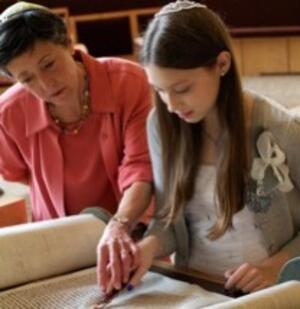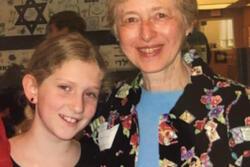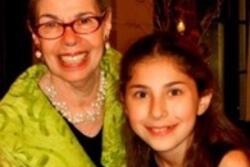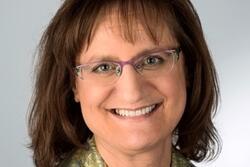A Woman’s Place is in the Cantorate
If you ask any member of Temple Beth Elohim in Wellesley, Massachusetts, they will tell you that Jodi Sufrin was made to be a cantor. Not only does she have a beautiful voice, but she radiates this soft warmth at all times—inviting everyone to take part in what she is saying or singing. From sing-alongs in Beth Elohim’s preschool to Friday night services, Cantor Sufrin has been a gentle, but nonetheless powerful female presence in my life. She is, and has always been, the type of person I (and every other young Jewish girl at my temple) aspire to be. And as I grew up and became the person I am today, I couldn’t have been luckier to have a role model like her, showing me what being a Jewish woman can mean.
I’m lucky in a way that Cantor Sufrin was not. It can be hard for young women in my generation, and in a liberal sect of Judaism, to imagine a bimah without female cantors and rabbis leading the congregation in prayer. In fact, today, women make up the majority of Beth Elohim’s clergy team. But things haven’t always been this way. Growing up, Jodi had female role models, some of whom were Jewish, but she didn’t consider any of them to be Jewish female role models. She told me that religion just wasn’t a woman’s domain, so much so, that she became a cantor “later than [she] would have liked,” despite knowing that it was her calling.
Jodi was raised by a mother who was a singer, and she started teaching music at her temple at a young age. As she grew up, she started singing for various congregations as a cantorial soloist. Yet despite this trajectory, and feeling like she belonged in the cantorate, the lack of female representation in this field held her back.
Eventually, after pursuing her passion for music, and with guidance from her parents, Jodi realized that the cantorate was where she was meant to be. After being a cantor at Beth Elohim for 35 years, she stresses that “women have a place” and that “our voices can be heard.” But she’s not sure that she always felt this way. In 1979, while studying at Hebrew Union College, she was paired with a female rabbinical student, Maggie, to lead services. While Jodi wanted her first ever service to be beautiful and moving (which has become her M.O.), Maggie wanted to shake things up by changing all of the Hebrew text into the feminine form (instead of the traditional “baruch atah adonai”, they began prayers with “brucha at ya”). People were angry and walked out of their service. Jodi described this experience as “mortifying.” Now, 39 years later, when Jodi leads women’s Seders on Passover, she changes all of the text to the feminine form. Jodi has helped create a community for me, and so many other women, to feel as much a part of our religion as we do our gender. In thinking back on her response to Maggie doing the exact same thing when she was in cantorial school, she wonders how liberated she actually was at that time.
In keeping with Jewish tradition, Jodi encourages Jewish women to continue to question just how liberated we are. Jodi says explicitly that she has always felt equal to men, and yet her story tells a different tale. After talking to Jodi, I started thinking about just how liberated I am. I look up to Jodi, whose presence fills up any space in an unapologetic yet unimposing way, as a role model in the purest sense of the term. Whatever roles I undertake throughout my life, I hope to do it with the same poise and power as Jodi does. And while Jodi is a strong female role model for young women who may aspire to be cantors, there are women who want to be firefighters, or pilots, or carpenters, or even President of the United States. Jodi’s story shows us that there is still work to be done. We are the people, the women, to be the role models for the future generations of women; it’s our turn to make ourselves the best “Jodis” we can be.
This piece was written as part of JWA’s Rising Voices Fellowship.








Excellent!